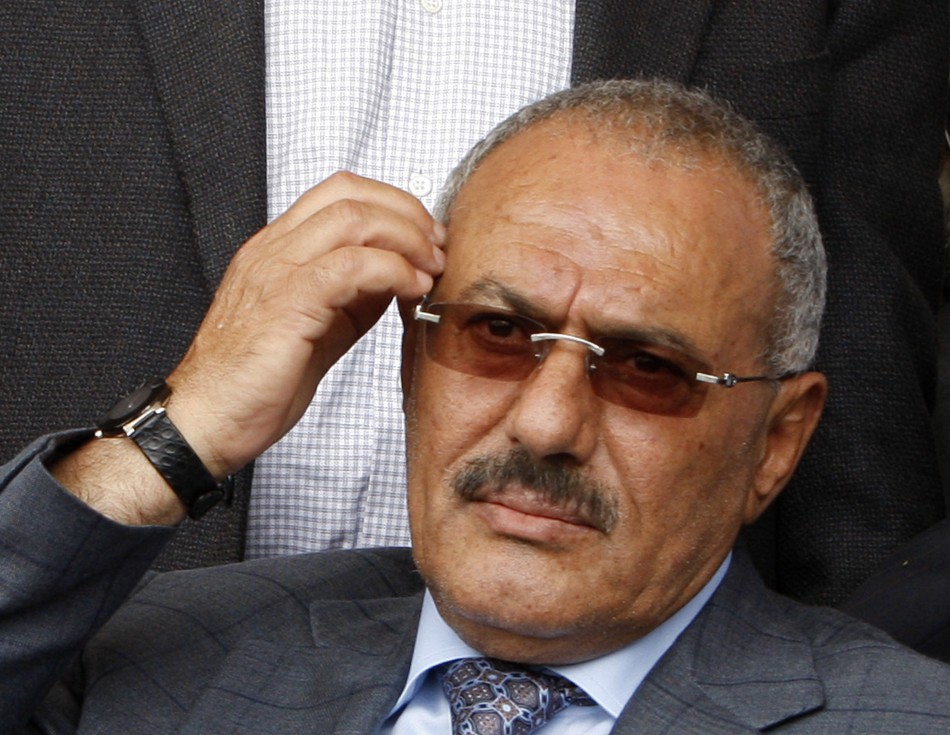Yemen Feature: Who's Who in the Battle for Power (Hill)
 Ginny Hill of the BBC offers a guide to the key players in the political and military contest in Yemen:
Ginny Hill of the BBC offers a guide to the key players in the political and military contest in Yemen:
Yemen is currently witnessing two parallel power shifts: a popular revolution inspired by the 'Arab spring', and an elite power struggle.
Competition between rival elite factions has been brewing for several years and has intensified as Yemen's long-serving president, Ali Abdullah Saleh, has concentrated power around his family.
Each faction cultivates clients and proxies across the political spectrum, within government ministries and the military, as well as among traditional community leaders.
Fighting broke out on Monday, between units loyal to Mr Saleh and the supporters of a rival family, the al-Ahmars, who hold a range of significant political and social positions.
Sadeq al-Ahmar is paramount chief of Yemen's most powerful tribal grouping, the Hashid confederation. His brother, Himyar, was deputy speaker of parliament, until he resigned in March to join the revolution.
Established opposition
A third brother, Hussein, organised tribal militiamen to fight in a long-running civil war in the northern province of Saada, close to the border with Saudi Arabia.
The fourth and most prominent brother, Hameed, is a wealthy business tycoon and opposition politician who owns the Sabafon mobile network and a television channel called Suhail TV.
Hameed appeared at rallies and speeches alongside the opposition candidate in the last presidential election campaign in 2006 and provides financial support to the opposition coalition.
A few years ago, he met a US official in Yemen's capital, Sanaa and revealed, according to the Washington Post, a secret plan to overthrow Mr Saleh by organising massive demonstrations and "controlled chaos".
When the revolution in Tunisia toppled President Zine El Abidine Ben Ali in January, Hameed responded to an obvious political opportunity.
The early wave of anti-government street protests in Sanaa were largely co-ordinated by the established opposition coalition and Hameed's Sabafon mobile network sent out messages to organise the protest times and locations.
Hameed - and other Yemeni businessmen - are also believed to be providing financial support to people living inside the protest camp.
But the momentum behind the revolution quickly grew beyond the top-down control of the established opposition.
The power-sharing deal that was struck between Sheikh Abdullah and Mr Saleh during the 1980s and 1990s has to be renegotiated by their inheritors.
The loyalties of a third regime player, senior army commander Gen Ali Mohsin al-Ahmar, will play a significant role in determining the outcome of these current clashes.
'Proxy war'
He commands the 1st armoured tank division and heads the north-west region, one of four military divisions in Yemen.
Confusingly, Gen Mohsin is a close kinsman of Mr Saleh but he is not related to the al-Ahmar family. He conducted the initial military campaign in the Saada war, which began in 2004, and tension between General Mohsin and the president's family gradually become apparent during the course of the war.
Gen Mohsin was said to be opposed to the increasing prominence of President Saleh's eldest son, Ahmed Ali, whose Republican Guard division was also stationed inside the conflict zone.
By 2008, Yemen's political elite was buzzing with rumours of clashes between Gen Mohsin and Ahmed Ali, Mr Saleh's eldest son. And Yemeni newspapers began reporting on a proxy war between the two men's forces, under the cover of quashing the Saada rebels.
In 2009, when Saudi Arabia deployed air and ground forces to quash the rebels' cross-border incursion, President Saleh's military planners presented Saudi pilots with coordinates for a possible air strike, which the Saudis realised was the location of Gen Mohsin's headquarters.
General Mohsin publicly defected from President Saleh in March, following a sniper attack on the protest camp in Sanaa. Since then, tank battalions under his command have been deployed at strategic locations throughout the capital.

 Saturday, May 28, 2011 at 7:11
Saturday, May 28, 2011 at 7:11
Reader Comments